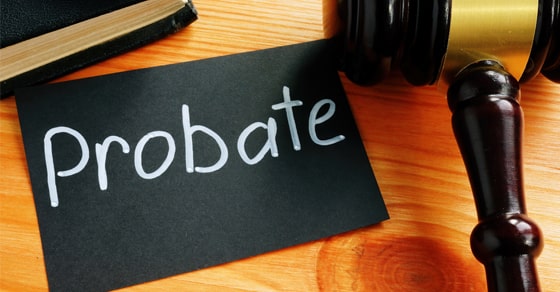
Most people are happy to receive an inheritance. But there may be situations when you might not want one. You can use a qualified disclaimer to refuse a bequest from a loved one. Doing so will cause the asset to bypass your estate and go to the next beneficiary in line. Let’s take a closer look at why you might want to take this action with four reasons to turn down an inheritance.
Gift and Estate Tax Savings
This is often cited as the main incentive for using a qualified disclaimer. But make sure you understand the issue. For starters, the unlimited marital deduction shelters all transfers between spouses from gift and estate tax. In addition, transfers to non-spouse beneficiaries, such as your children and grandchildren, may be covered by the gift and estate tax exemption.
The exemption shelters a generous $13.61 million in assets for 2024. By maximizing portability of any unused exemption amount, a married couple can effectively pass up to $27.22 million in 2024 to their heirs, free of gift and estate taxes.
However, despite these lofty amounts, wealthier individuals, including those who aren’t married and can’t benefit from the unlimited marital deduction or portability, still might have estate tax liability concerns. By using a disclaimer, you ensure that the exemption won’t be further eroded by the inherited amount. Assuming you don’t need the money, shifting the funds to the younger generation without them ever touching your hands can save gift and estate taxes for the family as a whole.
Generation-Skipping Transfer Tax
Disclaimers may also be useful in planning for the generation-skipping transfer (GST) tax. This tax applies to most transfers that skip a generation, such as bequests and gifts from a grandparent to a grandchild or comparable transfers through trusts. Like the gift and estate tax exemption, the GST tax exemption is $13.61 million for 2024.
If GST tax liability is a concern, you may want to disclaim an inheritance. For instance, if you disclaim a parent’s assets, the parent’s exemption can shelter the transfer from the GST tax when the inheritance goes directly to your children. The GST tax exemption for your own assets won’t be affected.
Passing Down a Family Business
A disclaimer may also be used as a means for passing a family-owned business to the younger generation. By disclaiming an interest in the business, you can position stock ownership to your family’s benefit.
Charitable Deductions
In some cases, a charitable contribution may be structured to provide a life estate, with the remainder going to a charitable organization. Without the benefit of a charitable remainder trust, an estate won’t qualify for a charitable deduction in this instance. But using a disclaimer can provide a deduction because the assets will pass directly to the charity.
We Can Help with the Details
Every situation is different, and there may be other reasons to turn down an inheritance, too. Additionally, be aware that a disclaimer doesn’t have to be an “all or nothing” decision. It’s possible to disclaim only certain assets, or only a portion of a particular asset, which would otherwise be received. In any case, before making a final decision on whether to accept a bequest or use a qualified disclaimer to refuse it, turn to the estate tax professionals at Ramsay & Associates. We can help you better understand the details and answer any questions. Contact us today.






